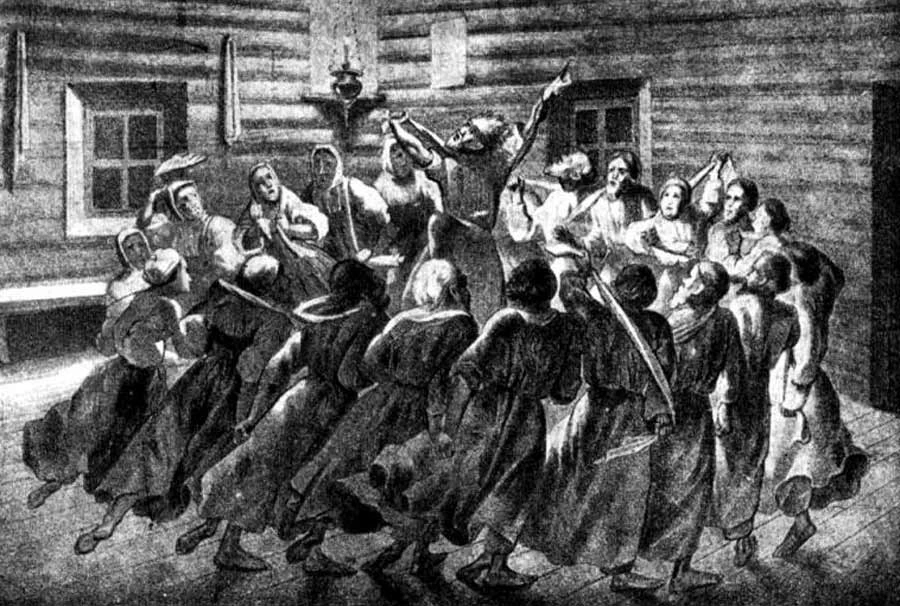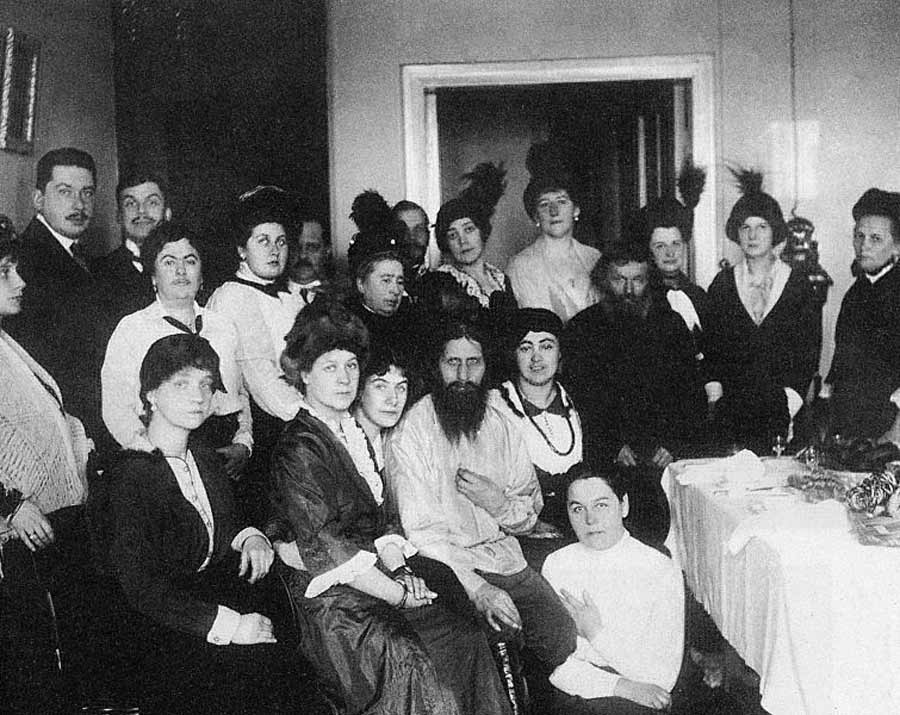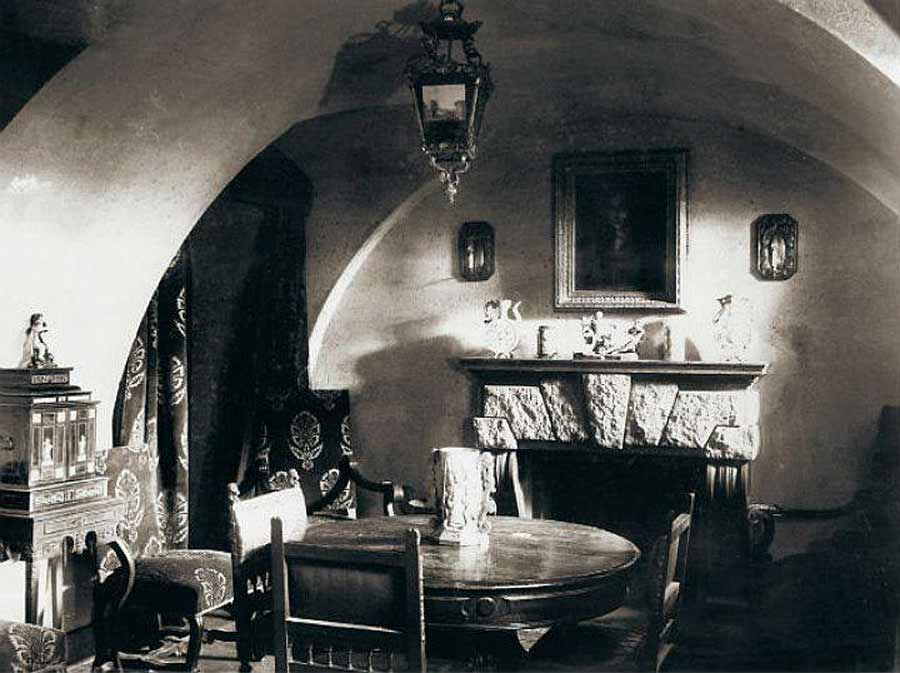Rasputin, a name that strikes the image of a dark and evil figure hell-bent on destroying Russia and the whole world. Many stories and myths have built up around this mysterious person. A peasant who went on to spell the downfall of one of Russia’s oldest dynasties or a mere catalyst for the Russian revolution? Accurate historical reports and popular legends about Rasputin often overlap and end up creating further mystery around him.
So, did Rasputin have magical powers? Was he an impostor? How did he exercise his influence over the Russian royal family? Why was he killed? You could find many other questions about Rasputin and his dark history like these.
The Beginnings of Rasputin
Rasputin has undoubtedly become a prominent figure in popular culture with a 1970s disco song in his name and even a Disney villain. Music and movies have definitely created a mixed impression of Rasputin’s origins and where he came from. However, he was born just like any other human being. The story of Rasputin started in 1869 in the village of Pokrovskoye on the banks of the Tura River, which flows towards the east from the Ural Mountains.
Without any formal education in his initial life, he seemed just like another normal boy. Despite the myths about his mystical powers at the age of 12, there are no particular pieces of evidence for this. He was married to Praskovya Dubrovina and had three surviving children, Maria, Varvara, and Dmitri. Rasputin grew up working on the family farm, until 1892.
The Big Change
Most of the myths around Rasputin and his mystical powers primarily stem from his early affiliation with religion. In 1892, he left his family and set off to an orthodox Christian monastery to practice religious devotion. This journey had a huge significance in the life of Rasputin.
Although many myths claim that his time at the monastery helped him unlock his full potential of mystic arts, evidence suggests the contrary. The trip to the monastery earned him the name of ‘The Mad Monk’ but Rasputin never followed the Holy Orders and continued to meet his family, thereby clearly indicating a conflict with spiritual laws.
The name ‘Mad Monk’ and his personal charisma with religious fervor played a crucial role in making him popular. Orthodox Russian clergymen started approaching Rasputin, and his association with them subsequently led to him developing some strong beliefs. He started to believe that he could become closer to God by overcoming his earthly passions. The fabled mystic also thought that he could completely dissociate from his earthly attachments through sexual exhaustion. Quite a strange way to get closer to God, isn’t it?
The Legend Grows
Siberia had a long historical association with extreme mysticism, and Rasputin appeared as a living embodiment of traits expected in mystics. He took long walks in the woods and also embarked on pilgrimages to far-off destinations, such as the Far East and Athens. The religiously group with which Rasputin was associated, named the Khlyst sect, had a huge influence on Rasputin’s beliefs.

The religious beliefs of the Khlyst sect implied committing sin for countering sin and had a formidable effect on the new personality of Rasputin as a holy monk. Gradually, Rasputin started to avoid bathing or changing clothes. The disheveled appearance of Rasputin as a result of his poor hygiene also had a huge influence on his persona.
The extreme myths about Rasputin’s dark side also have their roots in his habits of refraining from touching his body. Sometimes he would wear iron shackles to atone for the sins he apparently committed for getting closer to God. Upon his return to the village, many people found a drastic change in his persona. So, they further cemented his reputation as a holy man.

At this time, some villagers also perceived the possibility of dark forces behind the changed personality of this self-proclaimed saint. Reportedly, Rasputin also proclaimed himself to be a higher being, along the lines of an incarnation of God. He built a chapel under his house and invited many other people to follow his religious beliefs. Some accounts suggest that his acts of religious service largely involved his sexual encounters with members of the congregation. Therefore, it becomes quite clear that the perception of the dark forces behind Rasputin might have stemmed from his unnatural actions.
Rasputin and Sex
As you can see clearly, the religious beliefs and persona of Rasputin had a lot to do with his depraved sex life. On various occasions, Rasputin was accused of sexual debauchery. Rasputin’s explanation for his transgressions through sexual perversion was that, as a holy monk, he wanted to achieve spiritual completeness. He visited brothels and engaged in sexual encounters with various women on many occasions.

However, you have to think twice before perceiving Rasputin as a sexually obsessed maniac based on these accounts. The myths about the sexual promiscuity of Rasputin gained fuel from the existing environment in Russia during his time. The enemies of the monarchy used the evidence of Rasputin’s sexual exploits as fodder for spreading rumors about him. The press had significant freedoms and used the opportunity to target the Tsar of Russia at that time.
Therefore, you can believe all you want in the stories about Rasputin’s crazy sexual encounters and rituals. However, the truth is that he got the unwanted publicity of his private life with his closeness to the Tsar being one of the factors behind the many unnatural stories about Rasputin involving sex. After all, there’s a price to pay for becoming a popular personality in a short period of time.
The Road to Russian Elite
Fate opened its doors for Rasputin in October 1906 when he met Tsar Nicholas II and his wife, Alexandra. A few senior members of the Imperial family had arranged the meeting and Rasputin was able to captivate the Tsar and Tsarina with his mysterious charm. Tsar Nicholas had described his first encounter with Rasputin in a letter to one of his ministers a few days after the meeting.

In his account, Nicholas describes Rasputin as just a peasant from the Tobolsk district. However, he also notes the impact Rasputin had on him and his wife. As a matter of fact, he stated that Rasputin had such a good impression on them that a conversation that should have lasted only a few minutes went on for over an hour.
This is another noticeable place to find the origins of another myth about Rasputin: that he used dark magic to bring the Imperial couple under his influence in the first meeting itself. It is quite reasonable to assume such a myth to be true, especially considering the persona and life of Rasputin. On the other hand, it should be noted that Rasputin didn’t know any magic or mystic arts in the first place.
The Imperial couple had consulted with many unconventional spiritual advisors in the past. Rasputin was able to give them the hope they needed and fed into their ears exactly what they wanted to hear. So, some basic cold-reading techniques did the job for Rasputin in capturing the attention of an Imperial couple of Russia. He pushed Nicholas for exerting his powers as the Tsar with better confidence. Rasputin’s counsel has also been believed to soothe the anxieties of the Tsarina, Alexandra.
So, it is quite clearly evident that Rasputin was indeed a good reader of people’s minds. A shrewd manipulator, yes; a man with magical powers, no! Rasputin preyed on the biggest fears of the royal couple at that time, and their vulnerability played a huge role in their acceptance of Rasputin. He was perceived as a holy peasant from Siberia who had come to help the Romanov dynasty gain back its lost sheen.
Tsar Nicholas also perceived Rasputin as a representation of the Russian peasantry. Unlike the previous spiritual leaders, Rasputin was Russian and it was therefore possible for him to climb the social ladder and sit among the Russian elite. His charisma and character alongside mythical accounts about his spirituality helped him become a favorite of the Russian Imperial couple.
Rasputin and the Royal Family
One of the most talked-about aspects of Rasputin’s life also revolves around the different myths about Rasputin and the royal family. Rasputin became a regular appearance in the royal court after becoming the favorite of the Imperial couple. Many thought that the Tsar and Tsarina trusted Rasputin for his abilities to heal their hemophilic son, Alexei. Furthermore, some rumor mills also churned out baseless news about Rasputin’s scandalous sexual relationship with Alexandra. However, there is no concrete evidence to either of these myths about Rasputin.
The accounts of Rasputin using magic and dark arts for healing the hemophilia of the royal heir, Alexei, are false. However, Rasputin had instructed all the doctors to stay away from the boy and he instead used to sit beside him and tell him stories as treatment. Some pieces of evidence suggest that Rasputin used hypnotism during the time he told stories to Alexei. As a matter of fact, Rasputin basically helped the boy relax, and this might have played a huge role in stabilizing his arterial blood pressure.
Subsequently, his decision to keep the doctors away from the child might have also helped in alleviating the symptoms of Alexei. How? Among the many common medications used at that time, aspirin was the first choice of doctors. Unfortunately, aspirin is responsible for blood thinning, thereby leading to the worsening of Alexei’s condition. Therefore, Rasputin’s arrival definitely helped the royal family, although without any magic.
The Scandal
The rumors about Rasputin’s scandalous relationship with Tsarina Alexandra were doubtless caused by the overnight popularity of Rasputin. Despite his rustic appearance and mannerisms, Rasputin was a common sight at any gathering of the Russian elite. Most important of all, the Imperial couple trusted Rasputin and expressed reverence to him for his role in changing their lives for the better.

The unexplained attraction of the royal family towards Rasputin fueled the myth about the sexual relationship between him and Alexandra. However, he simply encouraged Alexandra to develop confidence in her ability to cure her son. His words of assurance helped the royal family find the strength to deal with the tough and confusing times. However, there is no evidence linking Rasputin sexually with the Tsarina.
The Demise of Rasputin
The death of Rasputin is one of the most doubted aspects in the many tales which fly around in his name. One of the most diabolical explanations about his death comes from the assailant, Felix Yusupov. Felix joined with some Russian nobles for killing Rasputin as an act of freeing the monarchy from a bad influence.
- History of the Amber Room and Its Mysterious Disappearance
- Who Was Aleister Crowley…Occultist, Satanist, and British Spy?
According to Yusupov’s account, he invited Rasputin to his home on the false pretext of meeting his beautiful wife, Irina. He then fed cakes and wine laced with cyanide to Rasputin only to find that the poison didn’t have any effect on him. The mythical account then suggests that Yusupov took the revolver of the Tsar’s cousin, Grand Duke Dmitri, and shot Rasputin.
However, Rasputin didn’t die from the bullet wounds and ran outside as Yusupov chased him and fired two or three more bullets at him before hitting one in his temple. Then, the conspirators dumped the mangled body of Rasputin into the nearby Malaya Nevka River.

Even though Rasputin had died from the bullet wound to his temple, the accounts of Yusupov are a little bit more dramatic. So, the death of Rasputin was just a conspiracy and not a physical realization of all ghostly interpretations and myths about him rising from the dead.
Conclusion
It is quite evident that the myths around Rasputin’s life have the upper hand over the facts. The myths about Rasputin have the much-needed element of excitement and spice that people like to hear. However, the truth is far blander and shows that Rasputin was just a man who was able to rise to power with his wit, charm, and persona. Despite the many reasons for vilifying the name of Rasputin, the 304-year old Romanov dynasty barely survived him, falling two months after his death. So, is there a link between Rasputin’s death and the fall of the Russian royalty or it would have happened eventually?
Top Image: Rasputin’s meteoric rise and sudden death have fascinated for generations Source: Innovated Captures / Adobe Stock.
By Bipin Dimri
